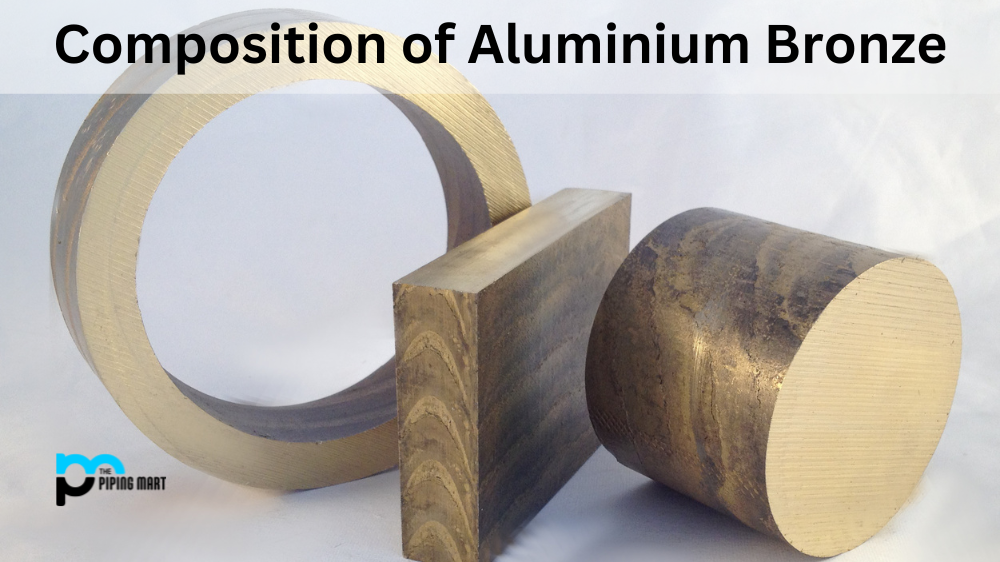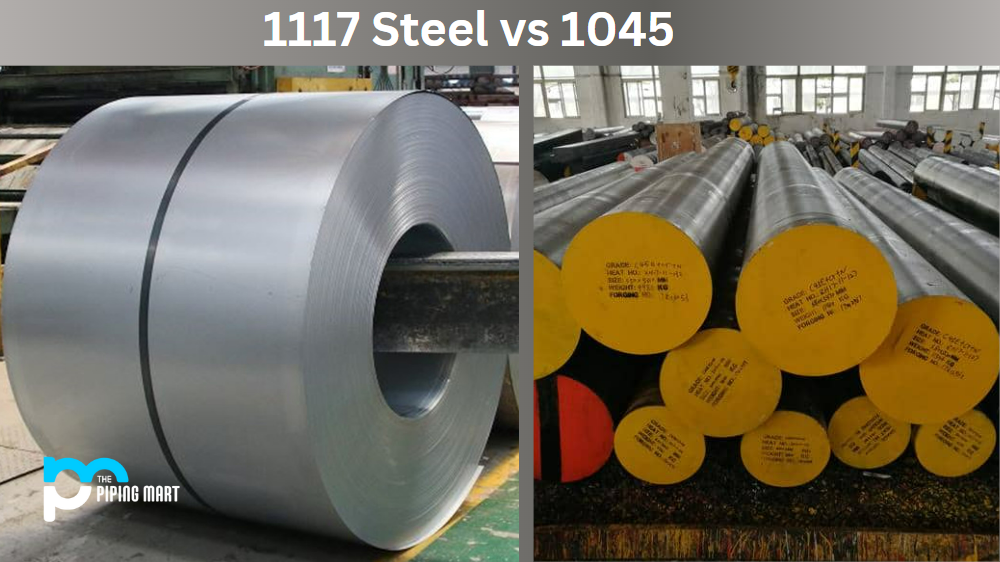Aluminum bronze is a type of alloy composed of copper and aluminum and is used for a variety of applications. It is highly resistant to corrosion and abrasion, making it an ideal material for many manufacturing processes. To understand why aluminum bronze is so popular, let’s take a closer look at its composition.
- Aluminium bronze alloys are made up of 9-14% aluminum and 4% iron.
- The percentage of aluminium in the alloy affects its properties.
- Aluminium bronze alloys are strong and resistant to corrosion.
- They are used in a variety of applications, including coins, bearings, and pipes.
- Some aluminium bronze alloys can contain other metals, such as iron or manganese.
The main components of aluminum bronze are 9-14% aluminum and 4% iron . Other metals such as iron, manganese, nickel, or silicon may also be in smaller amounts depending on the specific alloy used. The ratio between copper and aluminum varies depending on the intended application; higher levels of aluminum give the alloy greater strength, while higher levels of copper increase resistance to corrosion.
| Element | Content (%) |
|---|---|
| Copper, Cu | 82.7 |
| Aluminium, Al | 12.5-13.5 |
| Iron, Fe | 3.5-5.0 |
| Manganese, Mn | ≤2.0 |
| Other | ≤0.5 |
Aluminum bronze alloys are commonly used in applications where high levels of strength and corrosion resistance are required, such as water pumps, valves, bearings, gears, shafts, and marine parts. Its resistance to wear and tear makes it an ideal material for items that will experience significant wear and tear over time due to friction or corrosive environments. It has also been used in coins because of its durability and attractive coloration relative to other metals.
Due to its combination of strength and corrosion resistance properties, aluminum bronze has become increasingly popular in aerospace and military applications as well. For example, some aircraft engines use aluminum bronze components due to their ability to withstand extreme temperatures without degrading significantly over time. Similarly, it is often used for naval vessels because it can withstand the corrosive effects of saltwater better than most other materials.
Conclusion:
Aluminum bronze alloys have become an increasingly popular choice for both industrial and consumer applications due to their impressive combination of strength and corrosion resistance properties. This makes them suitable for use in a wide range of industries, including aerospace, automotive, construction, and maritime sectors. Whether you need superior wear resistance or want something that will stand up against corrosive environments like saltwater—aluminum bronze may be what you need!

Pipingmart is a B2B portal that specializes in metal, industrial and piping items. Additionally, we share the latest information and information about materials, products and various types of grades to assist businesses that are involved in this business.




